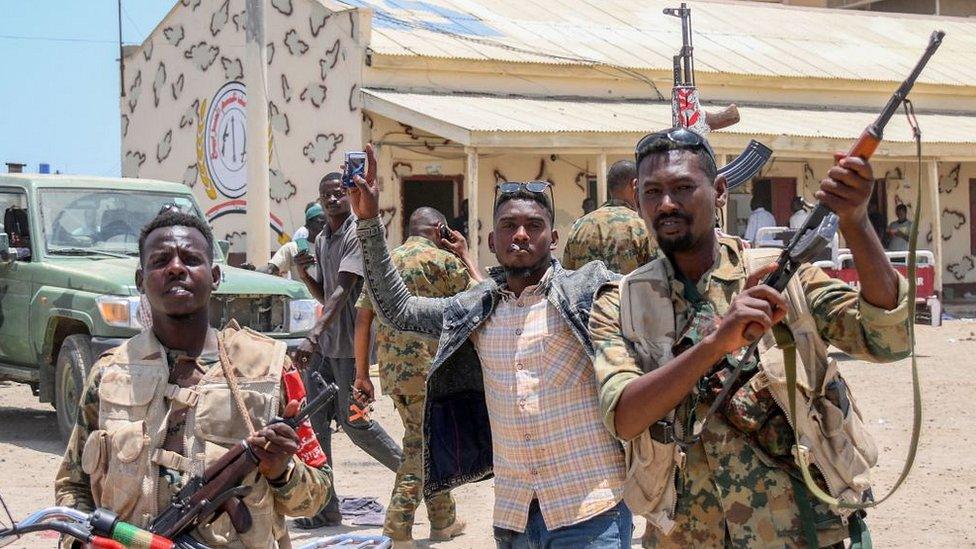Ministers face limited options for Sudan evacuation
- Published
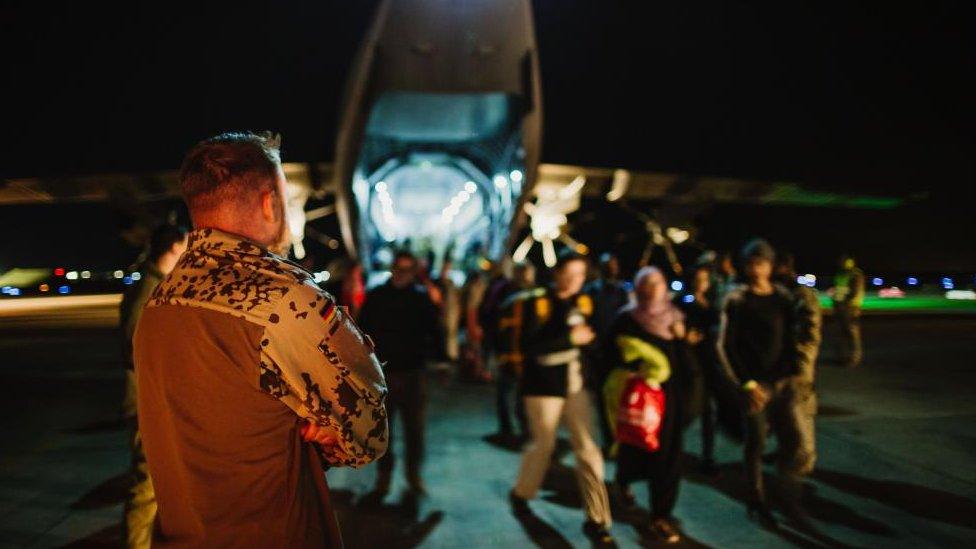
"Even the remotest chance of getting people out will be extremely, extremely difficult," says one senior figure.
The government is facing growing questions about what it is going to do to help thousands of Britons trapped in Sudan.
It is a live, febrile situation - there aren't properly functioning airports and there isn't an official British presence on the ground.
There is a Crisis Centre up and running in the Foreign Office, open 24 hours a day.
When news reached them British diplomats and their families, including children, were safe, having been extracted by UK forces, the emotions were raw. Tears were shed.
But the real challenge had barely started: working out how to get thousands of other Britons out.
For days, the conflict has been dominating the diaries of many of those at the top of government.
Cobr meetings - the contingencies committee the government gathers to coordinate its response to emergencies - have been taking place regularly, including one, I'm told at 03.00 BST one morning.
There were two such Cobr meetings on Sunday, one in the morning chaired by the prime minister, another in the evening led by Foreign Secretary James Cleverly.
Another will happen on Monday, as well a statement to the House of Commons.
Limited options
The situation in Sudan is bleak and hugely dangerous.
The British Embassy in Khartoum found itself caught between the two sides of the conflict.
Officials say what confronts them is vastly different from what became known as Operation Pitting, the evacuation of Afghanistan after the Taliban takeover in 2021.
That is why the foreign secretary and others are emphasising the need for a ceasefire or some sort of managed arrangement with those fighting to allow foreign nationals to get out safely.
Ministers are attempting to co-ordinate their approach with allies.
It is thought there are thousands of British nationals and those with dual nationality, including British, in Sudan.
The government insists it is doing what it can for them.
But the blunt truth - right now at least - is what it can do is limited.

How have you been affected by what's happening in Sudan? You can get in touch by emailing haveyoursay@bbc.co.uk, external.
Please include a contact number if you are willing to speak to a BBC journalist. You can also get in touch in the following ways:
WhatsApp: +44 7756 165803, external
Tweet: @BBC_HaveYourSay, external
Or fill out the form below
Please read our terms & conditions and privacy policy
If you are reading this page and can't see the form you will need to visit the mobile version of the BBC website to submit your question or comment or you can email us at HaveYourSay@bbc.co.uk, external. Please include your name, age and location with any submission.

Related topics
- Published24 April 2023
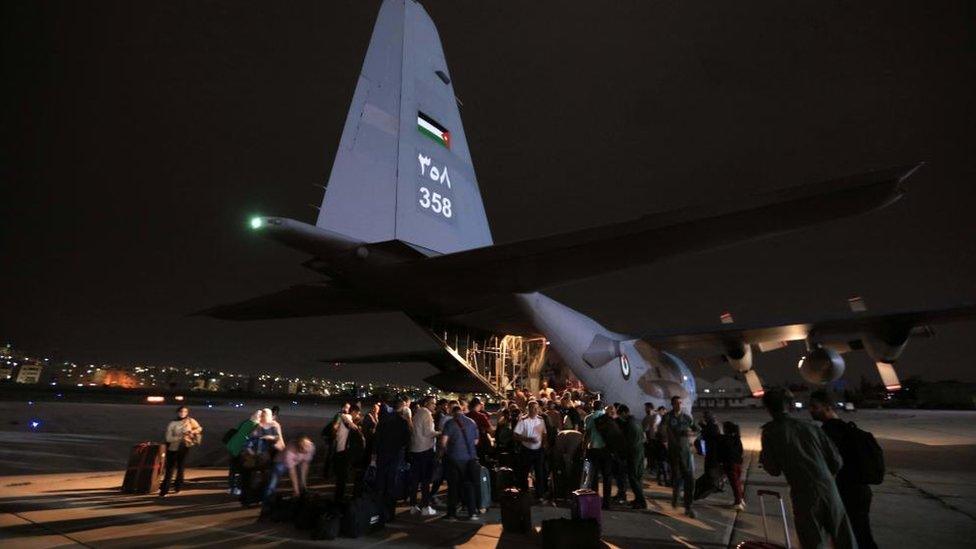
- Published22 April 2023
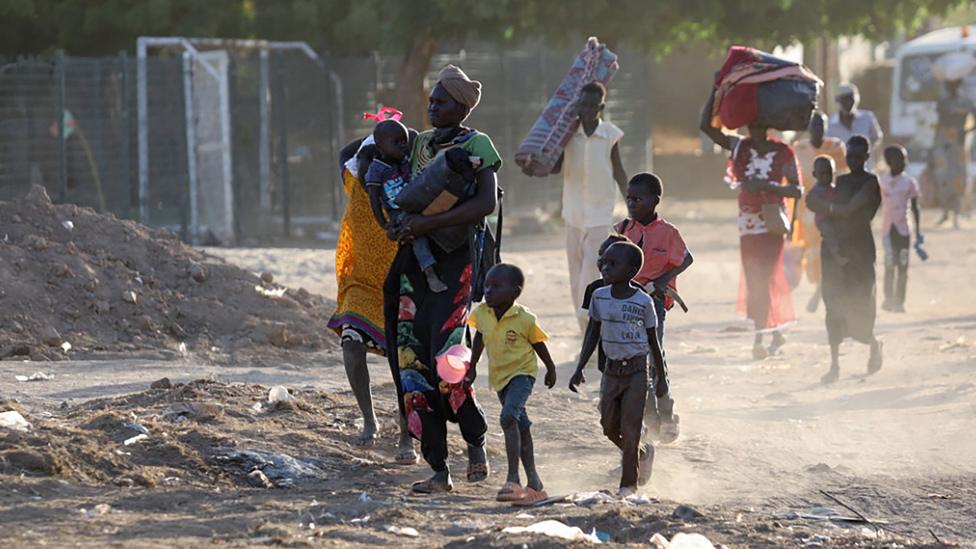
- Published24 April 2023
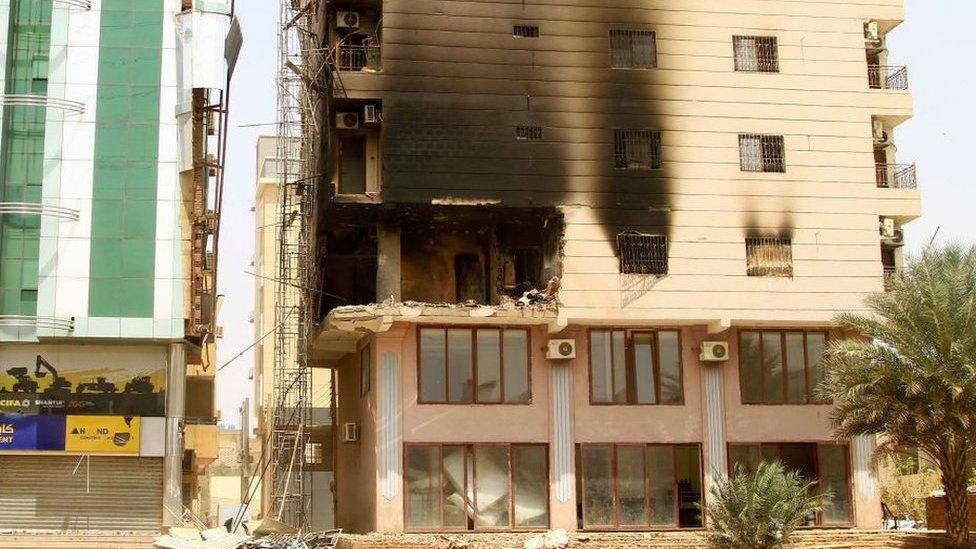
- Published24 April 2023

- Published20 April 2023
